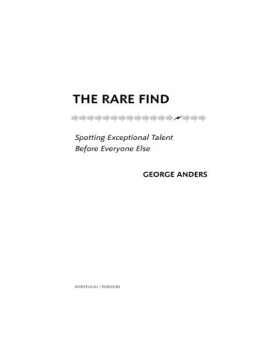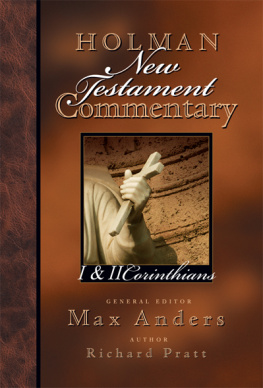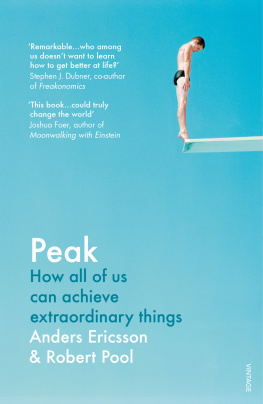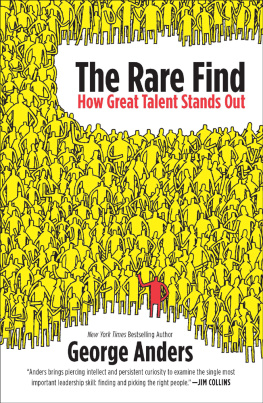Table of Contents
PORTFOLIO/PENGUIN
Published by the Penguin Group
Penguin Group (USA) Inc., 375 Hudson Street, New York, New York 10014, U.S.A. Penguin Group (Canada), 90 Eglinton Avenue East, Suite 700, Toronto, Ontario, Canada M4P 2Y3 (a division of Pearson Penguin Canada Inc.) Penguin Books Ltd, 80 Strand, London WC2R 0RL, England Penguin Ireland, 25 St. Stephens Green, Dublin 2, Ireland (a division of Penguin Books Ltd) Penguin Books Australia Ltd, 250 Camberwell Road, Camberwell, Victoria 3124, Australia (a division of Pearson Australia Group Pty Ltd) Penguin Books India Pvt Ltd, 11 Community Centre, Panchsheel Park, New Delhi110 017, India Penguin Group (NZ), 67 Apollo Drive, Rosedale, Auckland 0632, New Zealand (a division of Pearson New Zealand Ltd) Penguin Books (South Africa) (Pty) Ltd, 24 Sturdee Avenue, Rosebank, Johannesburg 2196, South Africa
Penguin Books Ltd, Registered Offices: 80 Strand, London WC2R 0RL, England
First published in 2011 by Portfolio / Penguin, a member of Penguin Group (USA) Inc.
Copyright George Anders, 2011
All rights reserved
LIBRARY OF CONGRESS CATALOGING-IN-PUBLICATION DATA
Anders, George, 1957
The rare find : spotting exceptional talent before everyone else / George Anders.
p. cm.
Includes bibliographical references and index.
ISBN : 978-1-101-53580-6
1. EmployeesRecruiting. 2. Ability. 3. Gifted persons. 4. Employee selection. I. Title.
HF5549.5.R44A523 2011
658.311dc23
2011020677
Without limiting the rights under copyright reserved above, no part of this publication may be reproduced, stored in or introduced into a retrieval system, or transmitted, in any form or by any means (electronic, mechanical, photocopying, recording or otherwise), without the prior written permission of both the copyright owner and the above publisher of this book.
The scanning, uploading, and distribution of this book via the Internet or via any other means without the permission of the publisher is illegal and punishable by law. Please purchase only authorized electronic editions and do not participate in or encourage electronic piracy of copyrightable materials. Your support of the authors rights is appreciated.
While the author has made every effort to provide accurate telephone numbers and Internet addresses at the time of publication, neither the publisher nor the author assumes any responsibility for errors, or for changes that occur after publication. Further, publisher does not have any control over and does not assume any responsibility for author or third-party Web sites or their content.
http://us.penguingroup.com
For Betsy, Matthew, and Peter
Introduction
In early 2005, Todd Carlisle began an experiment. He grabbed a notepad and ticked off twenty factors that might distinguish between hiring great employees and picking the wrong people. His early jottings focused on mainstream data that big companies normally track. Where did candidates go to college? What grades did they muster? How long had they been in the workforce, and so on?
Then Carlisle started popping into executives offices, asking them: What else would you add? His list got bigger. It got weirder. Carlisle didnt mind. Even when there was an outlandish, bite-your-lip quality to someones theories, Carlisle said, Thanks! and logged in the suggestion. Did Eagle Scouts make better employees? How about people who ran their own businesses in childhood? Or people with the single-minded intensity to set a national record in anything, no matter how unrelated to their jobs? What about chess wizards and dodgeball enthusiasts? Carlisle was a human sponge, soaking up every question he heard.
The more the list grew, the more it intrigued people. Nobody important had commissioned this project. Carlisle had dreamed up the idea on his own. Officially, he was just a new guy in human relations with a company laptop and a taupe cubicle. He carried the hazy and not-very-impressive job title of staffing programs manager. But as this affable thirty-year-old kept running around the headquarters of one of Americas most famous companies, powerful people started rooting for him.
One of the companys billionaire cofounders wanted to help out, too. He had emigrated from Russia at age six, settling into a new home in Maryland. By age nine, he was tinkering with a Commodore 64 personal computer that his father had given him as a birthday present. As the two men chatted, Carlisle wondered whether the best employees might have discovered computers at a very early age. That was worth researching, too.
Eventually, Carlisles list topped out at three hundred factors. He had rounded up every business practice, folk saying, and crackpot theory he could find. His company was less than ten years old, yet it already employed nearly five thousand people. By hiring so aggressively from all corners of the world, the company had created a rare cauldron of provocative ideas and remarkable people. It was Carlisles great fortune to be working thereat Googleat just the right time to carry out his project.
Many of Carlisles factors focused on the life paths of computer engineers, because they were such a huge part of Googles workforce. But his list was so long and so diverse that it had a universal quality, too. If people in any high-achievement field were to compile their own lists, a lot of the same factors would pop up, too.
It was time to test all the theories. Thanks to Googles data-centric culture, Carlisle had no trouble organizing a massive online canvassing of the companys workforce. Employees raced through census-style surveys, chronicling their habits and accomplishments. Former lemonade-stand operators checked off one box. Marathoners and patent holders checked off others. Even the dodgeball players got their moment. Meanwhile, existing Google databases documented which employees were regarded as superstars, strong performers, and laggards.
All that Carlisle needed to do (with suitable privacy precautions) was to connect these enormous databases, shake them together, and see what patterns emerged.
Within a few months, Carlisle had his answers. On the question of childhood familiarity with computers, Google cofounder Sergey Brin turned out to be right. People who grew up as early adopters of technology tended to be unusually creative adults in new, uncharted realms. Most other supposed markers of success turned out to be mirages. When all the number-crunching was done, several dozen factorsincluding a few real odditiesemerged as ones that could help predict candidates chances.
The biggest impact of Carlisles experiment, however, transcended any single hiring shortcut. What Google learned was that it had been looking at candidates rsums far too narrowly.
Fast-growing Google had started out by focusing inordinately on candidates education, grade-point averages, and even SAT scores. The thinking was that high-IQ people would do best at Google, and that the best way of gauging brainpower was to look at candidates classroom record. Google ended up with lots of Ph.D. holders from Stanford, MIT, Caltech, and top Ivy League schools. But by the time Carlisle got to work, there was lingering unease that some of these geniuses werent quite as effective as Google had hoped. Even more important, company insiders worried that they might be turning away a lot of talented people whose true abilities surpassed their academic credentials.
















